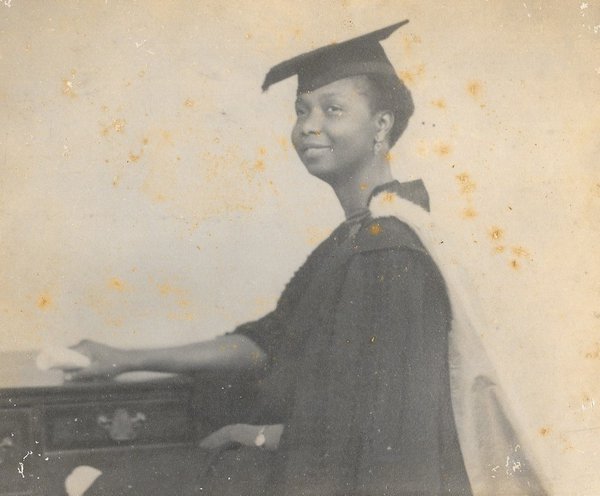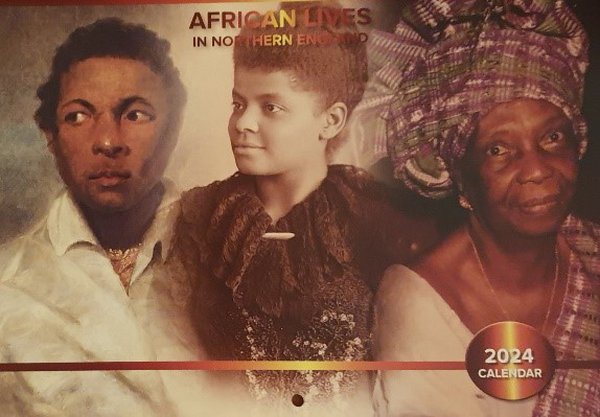How Sierra Leone’s first female doctor qualified in Newcastle — feminist, activist and trailblazer — Dr Irene Ighodaro
Dr Beverley Prevatt-Goldstein
Dr Beverley Prevatt-Goldstein, North East of England African Community Association (NEEACA) member, equalities activist, and coordinator of African Lives in Northern England Project, writes about the exceptional life of Dr Irene Ighodaro, a trailblazer who contributed much to life in Newcastle-upon-Tyne during the Second World War and beyond.
The story of Dr Irene Ighodaro featured in Discovery Museum’s Stories of Service: Tyneside’s Home Front during the Second World War, co-curated by Dr Prevatt-Goldstein, in association with Imperial War Museums (IWM).
Getting to know Irene Ighodaro
Our sister Irene Ighodaro nee Cole (1916–1995) was unknown to us in the African Lives in Northern England project when we began in August 2020. Our journey to uncover her story was made possible through good fortune and the good will of many. Sharing our journey of discovery illustrates both that wonderful stories of our sisters are unknown and the often haphazard process of moving towards a more complete and accurate picture.
Initial Discovery
A group of nine people, historians, archivists, archaeologists and equality activists, was hastily convened in August 2020 to compose a calendar which would challenge the racism in the North East by showcasing the African lives that are integral to its history. One of the group’s members, Sean Creighton, suggested that the first black doctor in Newcastle, Wellesley-Cole should be included. Wikipedia links revealed his book — “An Innocent in Britain’’, which was swiftly obtained despite the Covid lockdown, via a PhD colleague and the local university’s inter-library loan system. Three sentences on Wellesley-Cole’s sister, Irene Cole, sparked our interest:
'She entered Newcastle Medical School in 1938 and was the first woman from Sierra Leone to qualify as a doctor and the second West African… That year, 1944, my sister qualified as a doctor. She did a six-month stint as House Surgeon in the Department of Maternity and Gynaecology and then… bedded down into medical practice [She took over her brother’s General Practice for six months while he was in West Africa]. My sister married her fiancé, Samuel O. Ighodaro and eventually they went home to Nigeria' (Wellesley-Cole, 1987, pp. 159, 176, 226).

Irene Cole’s graduation, Newcastle Medical College, 1944 (photograph courtesy of the Ighodaro family).
Finding out more
However, our first calendar already had its full complement of characters and needed to go to print in time for the Christmas sales. But its success encouraged our next endeavour, a booklet on African Lives in Northern England. This time we would do justice to our shining sisters and include Irene. A circuitous route — from a yoga student to her cousin, to her good friend, to her cousin — led us to Tony Ighodaro, Irene’s son. He shared with us a paper by Ms Wyatt based on Wellesley-Cole’s archived letters, corrected errors we had gleaned from the sources below on Irene, and provided the family’s perspective on the narrative. Now we could include in our booklet most of our new knowledge:
- Irene’s active involvement in local and national voluntary organisations, co-founding the Newcastle-based Society for the Cultural Advancement of Africa and the first West African Women’s Association in England, and her participation in the West African Students Union and the League of Coloured Peoples.
- Irene’s participation in the Second World War effort in Newcastle, treating casualties and working on the decontamination squad at the Royal Victoria Infirmary.
- Irene’s feminist stance, insisting on paying taxes in Benin City, Nigeria so that, despite being a woman, she could vote, and presiding over the Nigeri National Council of Women’s Societies and Association of University Women.
- Irene’s commitment to education and healthcare, becoming a consultant in maternal and child health to the World Health Organisation and publishing the book ‘Baby’s First Year.’
- Irene’s receipt of an MBE in 1958.

Irene Ighodaro (photograph courtesy of the Ighodaro family)
Sharing the story of Irene Ighodaro
This research was brought to a wider audience as a spotlight feature in the Stories of Service exhibition held at Newcastle’s Discovery Museum, from June 2022 — February 2023. Here, Irene’s story played a key role in challenging the binary unintentionally implicit in the way the exhibition had been curated, with two sections: Tyne and Wear women (white) and workers from Africa and the Caribbean (black men). Irene, the only black woman in the exhibition, demonstrated intersectionality.
In our second and third calendars Irene Ighodaro had a starring role.

African Lives in Northern England 2024 calendar (photograph courtesy of Beverley Prevatt Goldstein).
Irene Ighodaro’s story is also told in the online and live walks we developed in partnership with Historic England. She is featured at the site of the Royal Victoria Infirmary (1906 picture below) in our North Newcastle Walk.

Royal Victoria Infirmary, 1906 (Tyne & Wear Archives & Museums).
Completing the story?
Following advice from the leaders of other Black walks, we sought to provide a range of experiences on these online and live walks. We approached Tony Ighodaro for a recording on his mother that would provide a personal perspective. The recording, an excerpt of which follows, exceeded our expectations by providing information that brought Irene Ighodaro to life personally and professionally:
'Dr. Irene Ighodaro felt instinctively that all human beings should be treated as individuals, and not as representatives of any group… In her sympathy, she transcended all divisions of ethnicity, nationality and class.
She pursued a passionate quest to encourage women to take [the] other positions of leadership many merit.
She set up the University of Benin teaching hospital and became first chairman of the Board. It was the first time a woman had been appointed to so high a policymaking position in Nigeria. She was able to harness goodwill from her innumerable international contacts, and she forced the project past bureaucratic obstruction, male egos, political sabotage and vested interests. The hospital was built, staffed and opened in under three years.'
But there may be yet more to learn about this shining sister, Irene Ighodaro.

Irene Ighodaro (photograph courtesy of the Ighodaro family).


